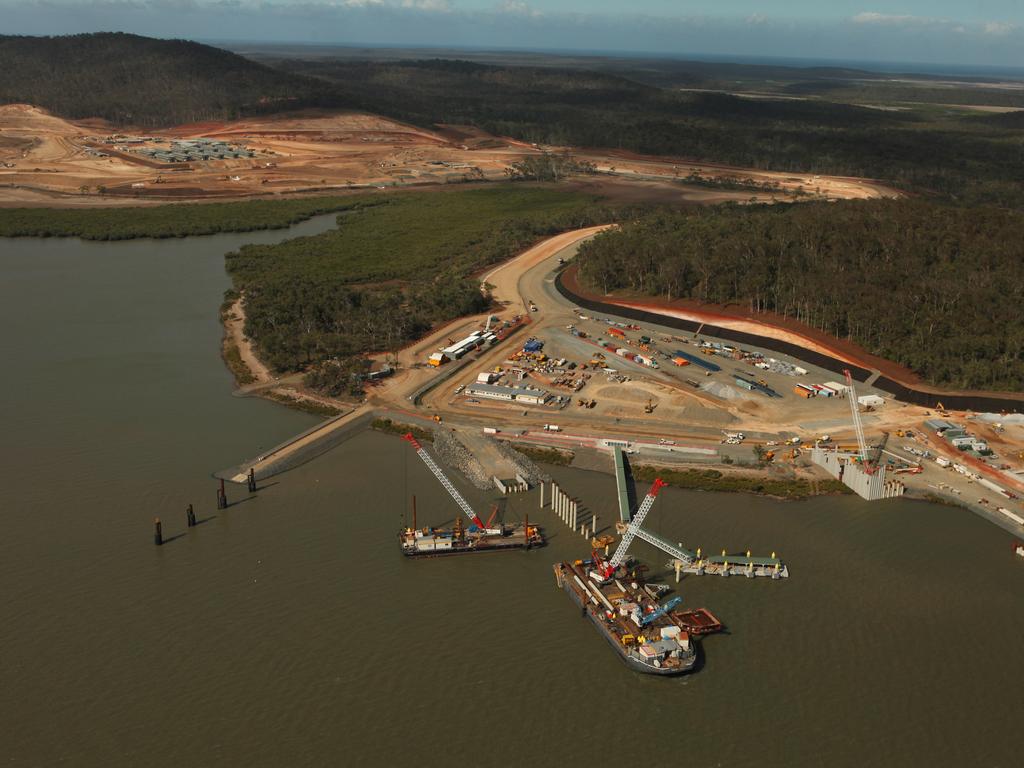Last-ditch effort to stop fishers class action against GPC
Lawyers for Gladstone Ports Corporation continue their efforts to have a class action case against the government-owned entity thrown out by way of 400-year-old torts.
Rockhampton
Don't miss out on the headlines from Rockhampton. Followed categories will be added to My News.
Lawyers for Gladstone Ports Corporation continue their efforts to have a class action case against the government-owned entity thrown out by way of 400-year-old torts.
The lawyers have filed an application with Australia’s High Court, asking for the decision of the Queensland Court of Appeal to be set aside, which upheld the decision by Supreme Court in Rockhampton’s Justice Graeme Crow on September 13, 2020.
Government-owned GPC is being sued by more than 150 people (fishers) in Queensland and New South Wales – from Bowen to Sydney including Keppel Bay, Stanage Bay and Gladstone region operators – who are seeking up to $150m in damages.
The claim by fishers is dredging and associated works in 2011 during the Gladstone Port expansion project polluted waters and seas, degrading the quality and quantity of fish, impacting commercial fishermen and associated businesses’ livelihoods.
GPC lawyers had argued the funding arrangements between fishers (comprised of commercial fishermen and associated businesses) and Litigation Capital Management (LCM) are “unenforceable” (void) due to the medieval torts of Champerty and Maintenance.
GPC lawyers have been trying to have the funding arrangement axed by law since September 2019, but their actions started with letters in February 2019.
This latest application is surprising because other defendants have tried to have class action cases against them in other states quashed by the High Court due to the plaintiff’s cases being funded by a third party, only to have the High Court rule in favour of the plaintiffs, such as the Fostif decision 14 years ago.
The High Court found in the Fostif decision litigation funding was neither an abuse of process nor contrary to public policy.
GPC lawyers argue the Fostif decision did not address the issue of the funding agreement being void or not due to the torts of champerty of maintenance because the case was being heard in New South Wales where the government had abolished the torts.
GPC lawyers claim the Queensland Court of Appeal – which handed down its decision from GPC’s appeal application against Justice Crow’s September decision – erred in its decision with five parts outlined in the GPC application to the High Court.
In this latest appeal, GPC lawyers argue the Court of Appeal, in its decision, raised questions as to whether the torts have been absorbed within the policy of abuse of process in states where the torts have not been abolished by law and therefore leaving “the law governing these issues is in a state of flux”.
Chris Thompson of Law Essentials, and part of the fishers legal team, said the present application by Gladstone Ports Corporation therefore represented its third and final attempt to have the funding agreements declared unenforceable.
RELATED: Fishers’ class action against Gladstone Ports to go to trial
Background
Champerty and maintenance was introduced to British law in the 1600s and has been scrapped by NSW and Victoria. But it has not been officially axed in Queensland.
When GPC’s lawyers took the argument to court, asking Justice Crow to make a decision if the funding arrangement was “vexatious, champertous”, the fishers’ lawyers asked His Honour if he were to rule the arrangement was not “unenforceable by way of Champerty and Maintenance” to give the 400-year-old torts “a decent common law burial”.
Justice Crow, who preceded over this first request, found the security in that form would be adequate, that the funding agreements did not involve unlawful conduct or purpose, and were not prejudicial to the administration of justice
He outlined his findings in an 80-page judgment – with 60 pages dedicated to examining the historical evolution of champerty and maintenance. Read more here: Landmark decision in fishers verse Gladstone Ports Corp
The Court of Appeal decision stated Justice Crow “did not decide the question of the law as, with respect, his Honour ought to have done”.
RELATED: GPC lawyers call deal vexatious under 400-year-old tort
RELATED: Gladstone Ports Corp class action evidence ‘missing’
RELATED: Court orders Ports Corp hand over dredging diary

The Court of Appeal reasons for rejecting GPC’s claim
GPC took the matter to the QCA, requesting the body make a decision about the funding arrangement as per public policy – saying the level of control the funder had over the litigation went against public policy.
While a decision involving Champerty and Maintenance was not requested by GPC, the QCA had to examine the history of the British torts and the policy behind the torts which dated back to medieval England where powerful barons used their armed men and servants to frighten away those who had a better claim to land seized by the powerful baron’s entourage.
The examination included a 1984 Full Court of the Supreme Court of Queensland decision which described ‘maintenance’ as “the procurement, by direct or indirect financial assistance, of another person or institute or carry on or defend civil proceedings, without lawful justification”.
The decision pointed to an 1876 decision in India which held that a champertous agreement, made in order to fund litigation to benefit a plaintiff who could not otherwise afford to litigate, would be regarded as furthering right and justice and necessary to resist oppression.
Further, in the Fostif 2006 case, the defendant in the class action case was an abuse of power as the funding agreement between the funders and plaintiffs gave the funders the ability to corrupt the court’s processes, which was rejected.
“We reject the contention that a funder would be more likely to misconduct litigation than anyone else just because the funding agreement is champertous,” the QCA decision stated.
“The appellant’s appeal to public policy fails. Those aspects of society which rendered it desirable to criminalise acts of maintenance, thereby making them tortious also, have long since vanished.
“On the other hand, the current policy of the law, as found in the Queensland statue, not only recognises the public benefit to be derived from class actions which must depend upon champertous agreements for their efficacy, but that recognition has been reached in social conditions within which, in other Australian jurisdictions, there has by now been a long history of such litigation without any of the appellant’s predicted ills having been experienced.”






